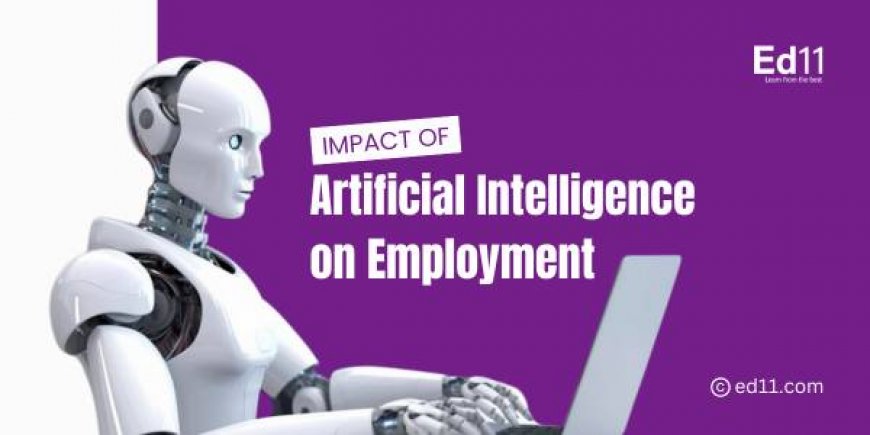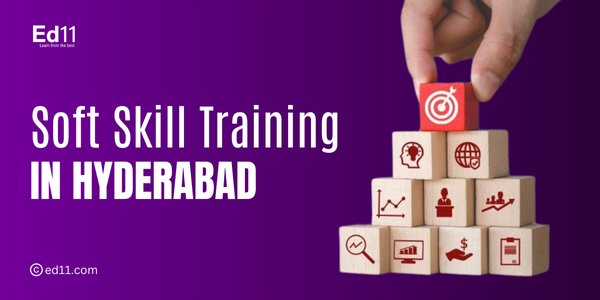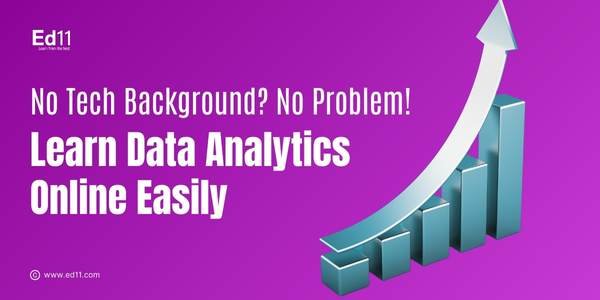Impact of Artificial Intelligence on Employment
Explore the impact of Artificial Intelligence on employment, including job automation, new opportunities, and how AI is reforming the future workforce.

As a Senior Data Analyst, I’ve seen directly how Artificial Intelligence (AI) is transforming industries and reshaping the job market. While there is a lot of discussion about AI replacing jobs, the positive impact of Artificial Intelligence on Employment often gets overlooked. In reality, AI creates new opportunities, improves efficiency, and enhances job satisfaction in many ways. Let’s explore the positive impact of Artificial Intelligence on Employment and how it benefits workers and businesses alike.
What is impact of Artificial Intelligence on Employment
Artificial Intelligence (AI) is changing the way we work, and its impact is hard to ignore. It helps businesses complete tasks faster and more efficiently, freeing up employees to focus on more meaningful work. While AI has replaced some jobs, particularly repetitive tasks like factory work, it is also creating new opportunities in technology, healthcare, and other growing industries. With tools like Python, AI is becoming more accessible to developers and businesses, driving this transformation.
Future Impact of Artificial Intelligence on Employment
-
Creates New Job Opportunities: AI will create new roles in areas like programming, data analysis, and AI development. It opens doors to careers in advanced technology fields.
-
Changes the Way We Work: AI can handle repetitive tasks, allowing people to focus on creative and strategic work. It makes jobs more efficient and less stressful.
-
Challenges for Some Jobs: Certain jobs, like data entry or factory work, may be replaced by AI. Workers in these fields might need to learn new skills.
-
Supports Business Growth: AI helps businesses grow by improving decision-making and productivity. This creates a demand for jobs that involve managing AI tools.
-
Focus on Lifelong Learning: To stay relevant, people will need to keep learning and updating their skills. Education and training will play a key role in the AI-driven future. AI will change the job market, but it also brings opportunities for those who adapt and embrace new skills.
Top Positive Impact of Artificial Intelligence on Employment
Creating New Job Opportunities
One of the most significant impact of Artificial Intelligence on employment is the creation of entirely new roles. AI has opened up opportunities in fields like data science, machine learning engineering, and AI ethics consulting. Professionals are now needed to design, train, and maintain AI systems, as well as to ensure they are ethical and unbiased. Additionally, roles like AI product managers and natural language processing (NLP) specialists have emerged to bridge the gap between technology and business needs. The demand for robotics engineers, automation specialists, and AI trainers is also on the rise, as organizations integrate AI into their operations. This transformation has not only created jobs but also spurred innovation and reshaped industries, highlighting the growing synergy between human expertise and AI technology.
-
Data analysis and AI development.
-
Machine learning engineering.
-
AI ethics and governance.
-
Automation strategy and implementation.
For example, as AI automates repetitive tasks, it increases the demand for skilled professionals who can develop, maintain, and optimize these systems. Workers are also needed to analyze data generated by AI tools, creating new career paths.
Enhancing Productivity and Efficiency
AI improves productivity by handling time-consuming and repetitive tasks, such as data entry or scheduling. This allows employees to focus on more meaningful and creative work. The impacts of AI here are particularly noticeable in industries like software development, where tools powered by AI assist in writing, testing, and debugging code for languages like Java. By automating routine tasks in Java programming, such as syntax checks or refactoring, AI enables developers to concentrate on designing innovative features and solving complex problems. This blend of AI and Java expertise enhances efficiency and drives creativity in software projects.
-
Healthcare: AI assists doctors with diagnostics, enabling them to focus more on patient care.
-
Finance: AI automates routine accounting tasks, freeing accountants to provide strategic advice.
By improving efficiency, AI helps workers achieve more in less time, making their work more rewarding and less stressful.
Enabling Reskilling and Upskilling
AI is transforming the workplace by streamlining operations and enhancing productivity. By automating repetitive tasks like data entry and customer support, employees can focus on more strategic and creative work. The rise of AI has also created a demand for workers to learn new skills, leading to a significant shift toward reskilling and upskilling. Companies are increasingly investing in AI-powered training programs to help employees adapt to changing technologies. These programs use personalized learning paths and real-time feedback, making training more efficient and effective. AI tools also analyze employee performance, identifying skill gaps and suggesting tailored courses. Additionally, virtual and augmented reality powered by AI are being used to create immersive training experiences, helping workers gain hands-on practice. This blend of technology and training ensures that employees remain competitive and well-prepared for the future of work.
-
Online learning platforms powered by AI that offer personalized courses.
-
Tools that help workers stay up-to-date with industry trends.
Reskilling ensures workers remain competitive in a changing job market while giving them access to better opportunities.
Improving Workplace Safety
Another positive impact of Artificial Intelligence on employment is the improvement of workplace safety. AI-powered tools can monitor hazardous environments and alert workers to potential risks, reducing accidents and injuries. For example, AI sensors can detect gas leaks, temperature changes, or equipment malfunctions in real time. In manufacturing, AI-powered robots can perform dangerous tasks, keeping human workers out of harm's way. Similarly, AI-driven wearables can track worker health metrics, providing early warnings for fatigue or overexertion. By minimizing risks, AI ensures a safer work environment while enhancing productivity. It also reduces downtime caused by workplace incidents, benefiting both employees and employers. In industries like construction, mining, and healthcare, AI’s role in safety is transformative, building a culture of prevention and well-being.
-
Manufacturing: AI-driven robots handle dangerous tasks, reducing the risk of injury.
-
Construction: AI monitors sites for safety violations and ensures compliance.
By minimizing workplace hazards, AI creates a safer environment for employees, improving job satisfaction.
Boosting Creativity and Innovation
AI revolutionizes the workplace by automating repetitive tasks, freeing employees to focus on higher-value activities like strategy, problem-solving, and innovation. By taking over mundane duties, AI enables workers to use their time more effectively, fostering creativity and productivity. This shift not only enhances job satisfaction but also promotes skill development as employees explore new challenges. Moreover, AI tools assist in data analysis, decision-making, and workflow optimization, allowing teams to make better-informed decisions. Collaborative AI systems also act as virtual assistants, streamlining communication and project management. This synergy between AI and human effort opens up opportunities for businesses to grow and employees to thrive in more fulfilling roles.
-
Designers use AI tools to generate concepts and improve creativity.
-
Marketers rely on AI for customer insights, freeing them to craft better campaigns.
Supporting Remote Work
AI has significantly transformed remote work, making it more efficient and accessible. During the COVID-19 pandemic, AI-powered tools enabled seamless communication and collaboration, ensuring businesses could operate despite physical distances. Virtual meeting platforms with AI features like automated transcription and noise cancellation improved online interactions. AI-driven project management tools optimized workflows, keeping remote teams aligned and productive. Additionally, AI in cybersecurity ensured secure data sharing and communication, protecting remote operations from threats. Intelligent chatbots and virtual assistants supported customer service and routine tasks, reducing workload for remote employees. AI also personalized learning and training for remote workers, helping them upskill from anywhere. This technology continues to redefine remote work, fostering innovation, flexibility, and productivity in a globalized workforce.
-
Smart scheduling tools for managing virtual teams.
-
AI-powered communication platforms for collaboration.
-
Enhanced productivity tracking and analytics.
With these tools, remote work has become more efficient, enabling employees to maintain a better work-life balance.
Promoting Diversity and Inclusion
AI-driven recruitment tools are transforming the hiring process by promoting fairness and inclusivity. These tools use algorithms to analyze resumes objectively, focusing on candidates' skills, qualifications, and experience rather than subjective factors like personal connections or unconscious biases. By eliminating human prejudices, AI helps ensure that every candidate has an equal opportunity. Additionally, these tools streamline recruitment by quickly identifying top talent from a large pool of applicants, saving time and resources for HR teams. They can also analyze language and phrasing in job descriptions to remove biased terminology, making job postings more inclusive. As a result, AI-driven tools not only promote diversity in the workplace but also contribute to building stronger, more dynamic teams.
Driving Economic Growth
AI boosts economic growth by enhancing efficiency, automating repetitive tasks, and driving innovation across industries. By streamlining operations, businesses can reduce costs and increase productivity, leading to higher profits and reinvestment in new ventures. AI also fosters the creation of entirely new industries, such as autonomous vehicles, personalized healthcare, and advanced robotics, generating fresh opportunities for economic expansion. Additionally, the ripple effect on employment is significant. As businesses grow and adopt AI, they create demand for new roles, particularly in AI development, maintenance, and integration. Upskilling and reskilling workers are key to harnessing these opportunities. Furthermore, AI enhances decision-making, enabling companies to identify new markets and improve customer experiences, ultimately fueling economic growth. This transformative technology continues to reshape the global economy, making it an important driver of innovation and progress.
-
Generating demand for AI-related roles.
-
Opening opportunities in sectors like robotics, AI development, and automation consulting.
Balancing AI and Human Collaboration
The key to maximizing the positive impact of Artificial Intelligence (AI) on employment lies in fostering collaboration between humans and AI systems. Rather than viewing AI as a replacement for human workers, it should be seen as a tool that enhances their abilities. By automating repetitive tasks, AI allows employees to focus on more strategic and creative responsibilities. This synergy leads to increased productivity, innovation, and job satisfaction. For example, in healthcare, AI can analyze vast amounts of data to assist doctors in diagnosing diseases faster and more accurately. In customer service, AI chatbots handle routine queries, enabling human agents to tackle complex issues. When businesses invest in training their workforce to work alongside AI, they create opportunities for upskilling and new job roles. Collaboration, not competition, is the future of AI in the workplace.
-
AI assists data analysts by processing large datasets quickly, allowing them to focus on insights.
-
In customer service, AI chatbots handle simple queries, while human agents tackle complex issues.
Final Thoughts
The Impact of Artificial Intelligence on Employment is overwhelmingly positive when viewed from a broader perspective. AI creates new job opportunities, improves productivity, and supports workers in countless ways. By enabling reskilling, promoting diversity, and fostering innovation, AI is reshaping the workforce for the better. As a Senior Data Analyst, I believe embracing AI is essential for both businesses and employees to thrive in the modern economy. By understanding and leveraging the positive impacts of AI, we can create a future where technology and human talent work hand in hand for success.

















